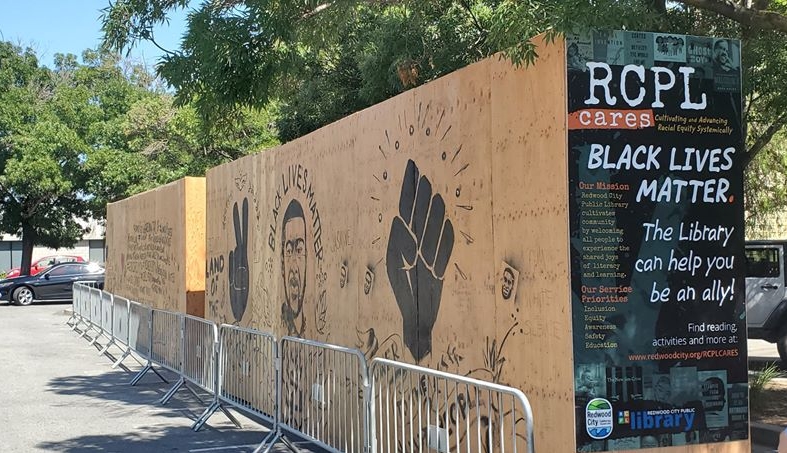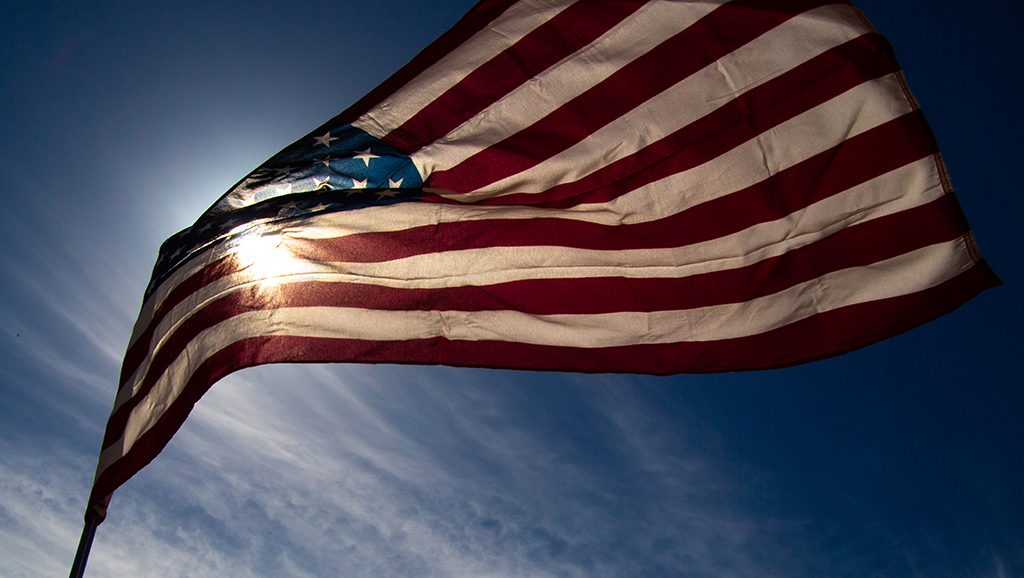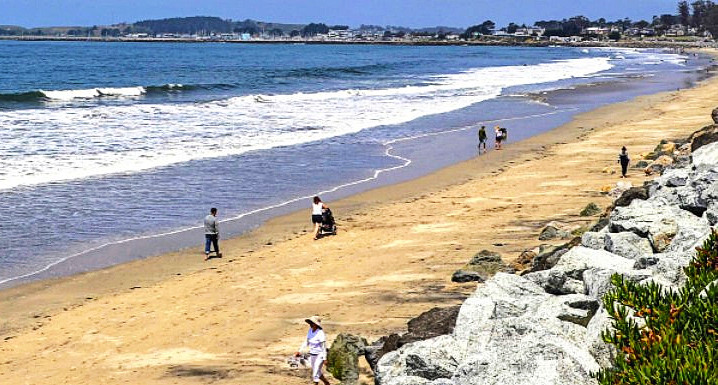Art from Redwood City BLM protest on display at Main Library

Artwork painted on plywood boards that covered store windows during a Black Lives Matter protest in downtown Redwood City on June 2 is now on display in the Main Library parking lot.
Thousands attended the peaceful, youth-led rally in Courthouse Square, which protested police brutality in the wake of the death of George Floyd while in Minneapolis police custody. Before the event, warnings of possible looting prompted many businesses downtown to board up.
The Fox Theatre was among those to do so, and it invited artist Jose Castro, creative director of Anonymous Recipes (Recetas Anonimas), to paint messages on the bare boards supporting the BLM movement. What Castro and others created became a visible, impactful symbol of the protest.
The plywood murals have since been preserved. Now, Redwood City is displaying them at the Downtown Library through Aug. 14 in solidarity with the movement and also “as a catalyst for ongoing dialogue about anti-racist actions we can all take together,” Library officials said.
The library is exploring additional, related displays in the future. Meanwhile, the city has expressed an intention to display the plywood mural at other city locations following its tenure at the library.
Photo credit: Redwood City Library



